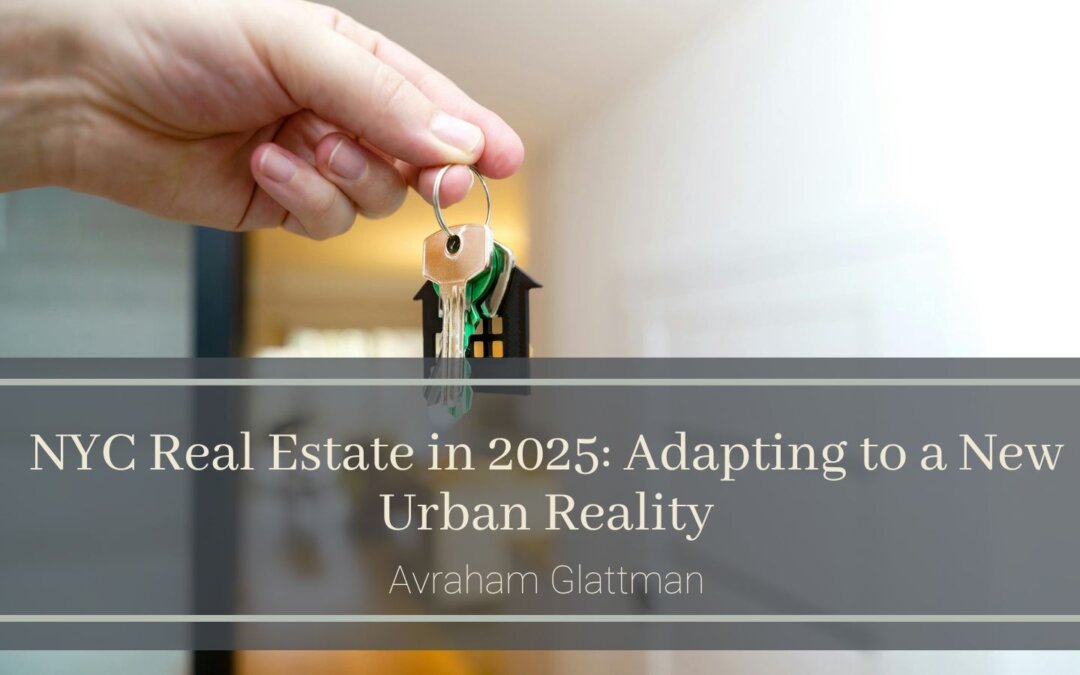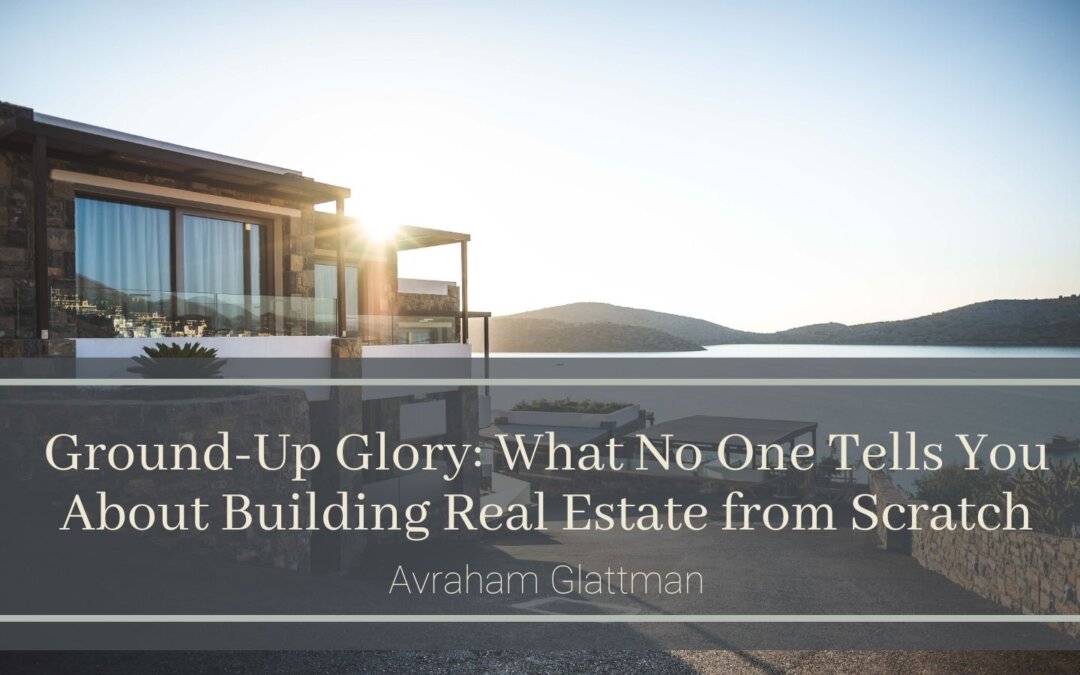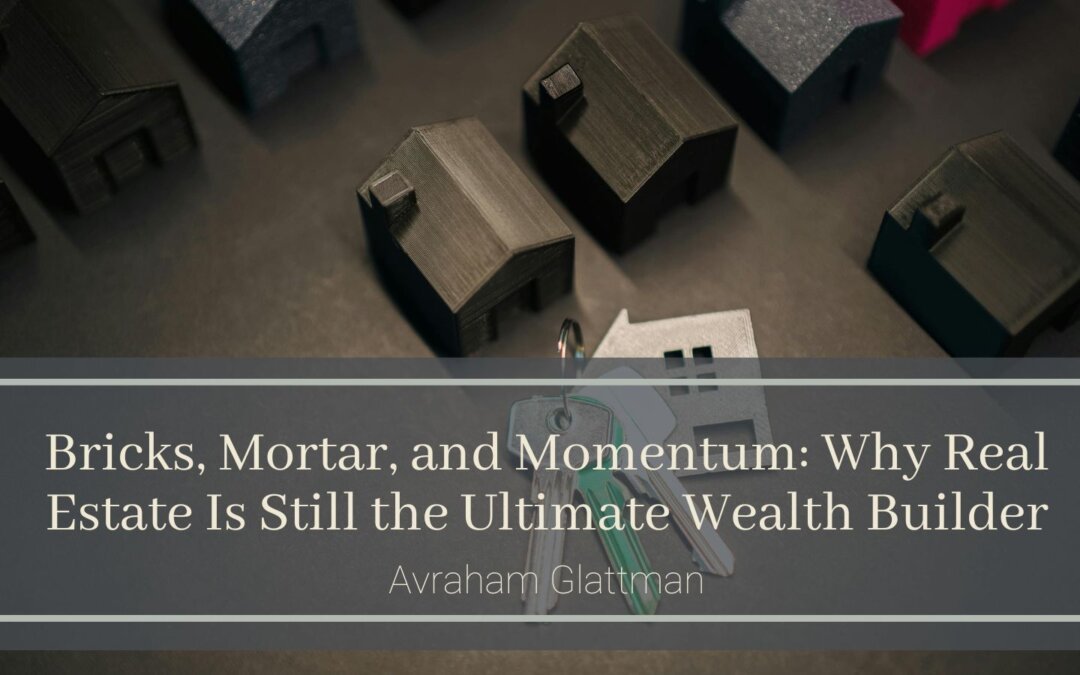
NYC Real Estate in 2025: Adapting to a New Urban Reality
New York City’s real estate market has always been a beast of its own — fast-paced, unpredictable, and fiercely competitive. But as we enter the final stretch of 2025, it’s clear that the city’s real estate landscape has undergone a profound transformation. Whether you’re an investor, buyer, renter, or real estate professional, understanding this new urban reality is essential.
Post-Pandemic Shifts Are Here to Stay
The pandemic-era narrative — with residents fleeing to the suburbs and city rent prices dropping — has shifted once again. People are back. Office buildings are slowly regaining occupancy, cultural attractions are thriving, and the demand for residential and mixed-use properties is rising. However, some of the changes born during that era have remained.
Remote and hybrid work models have changed how people view space. Many NYC renters and buyers are now prioritizing in-unit offices, outdoor areas, and flexible layouts. Traditional studio apartments, once a staple of NYC affordability, are less attractive unless they offer creative work-from-home setups.
The Luxury Market Is Thriving (Again)
Despite fears of a long-term downturn, NYC’s luxury real estate market is performing surprisingly well. Manhattan penthouses, townhouses in Brooklyn, and full-service high-rises are seeing increased activity, especially from international buyers looking to anchor capital in a stable market.
Foreign investors, especially those from Europe, the Middle East, and parts of Asia, continue to view NYC as a safe-haven investment — even amid global uncertainty. And while interest rates remain a concern, cash deals are more common in the luxury tier, making this segment less rate-sensitive.
Renting Remains Competitive and Pricey
After a brief dip during the height of the pandemic, rental prices have not only rebounded — in many cases, they’ve surged past pre-2020 levels. The average rent for a one-bedroom in Manhattan now flirts with the $4,000 mark, depending on the neighborhood.
Rising rents are pushing many into long-term lease renewals, roommate setups, or expanding their search into Queens and the Bronx. But even there, prices are steadily rising, especially near transit hubs and revitalized commercial corridors.
Affordability Challenges and New Development
Affordability remains a pressing issue — and a political one. Mayor Eric Adams and city planners have continued pushing for rezoning and upzoning to increase the housing supply, particularly in areas like Gowanus, SoHo/NoHo, and along the Bronx waterfront.
However, developers face stiff opposition from community boards, rising construction costs, and lengthy approval processes. The result? A tension between the urgent need for affordable housing and the logistical barriers to creating it.
What’s Next for NYC Real Estate?
Looking ahead, the NYC market will continue to reflect its historic resilience — but success in this space now requires adaptability. Buyers, sellers, and agents must stay informed, nimble, and strategic.
Whether you’re investing in a multi-family building in Queens, buying your first condo in Harlem, or managing a portfolio of rentals in Brooklyn, one truth holds: NYC real estate will always be complex, but with complexity comes opportunity.

Ground-Up Glory: What No One Tells You About Building Real Estate from Scratch
Ground-up development is the holy grail of real estate. It’s the ultimate play for developers who want full creative control, maximum upside, and the ability to shape neighborhoods — but it’s also one of the most complex, risky, and time-consuming paths in the industry.
The Allure of Ground-Up
Why do investors chase ground-up projects? Because the returns can be massive. When done right, developers create value from nothing — transforming empty land into high-demand residential buildings, mixed-use spaces, or commercial hubs. You’re not just buying into equity; you’re creating it from scratch.
But It’s Not Just Construction
Ground-up development isn’t just about putting up walls. It starts with site selection — identifying parcels of land with high potential. That means analyzing zoning, access to infrastructure, proximity to transit, local regulations, and community sentiment.
Then comes permitting and approvals — often the most grueling stage. Developers navigate municipal bureaucracy, community board meetings, and environmental impact studies. Delays are common. Patience is mandatory.
The Capital Stack is King
Financing a ground-up project is part art, part science. It often involves a capital stack that includes:
- Senior Debt: Bank construction loans
- Mezzanine Debt: Higher-risk, higher-return funds
- Preferred Equity: Investors with first dibs on returns
- Common Equity: The developer’s stake
Each layer has expectations, timelines, and exit strategies. Aligning all stakeholders takes savvy structuring and legal precision.
Time Horizon and Market Risk
Unlike value-add projects, ground-up deals take years. From acquisition to stabilization, timelines can stretch from 24 to 48 months or more. During that time, the market can shift dramatically — interest rates can rise, labor shortages can hit, or demand can cool.
Successful developers plan for these scenarios with contingency budgets, stress-tested pro formas, and strong relationships with contractors and city officials.
The Payoff
Despite the hurdles, the rewards can be transformative. A completed ground-up project can command premium rents, yield outsized equity returns, and become a lasting landmark in a community. For developers with vision and grit, it’s the most direct route to legacy-level wealth.
Closing Thought
Ground-up development is not for the faint of heart. It demands capital, patience, relationships, and deep market knowledge. But for those who can pull it off, it offers unmatched opportunities to shape the built environment and leave a lasting imprint on the skyline.

Bricks, Mortar, and Momentum: Why Real Estate Is Still the Ultimate Wealth Builder
In an age of crypto buzz, TikTok finance tips, and meme-stock mania, real estate remains one of the most consistent and reliable wealth-building tools available. While shiny new investment trends come and go, real estate continues to offer long-term stability, passive income potential, and equity growth that compounds over time.
The Tangible Advantage
Real estate is physical. It’s not an abstract number on a screen. You can walk through a property, touch the walls, renovate it, lease it out, or sell it. This tangible nature creates a sense of control that other assets rarely offer. Even in volatile markets, people always need places to live and work, making real estate a resilient asset class.
Appreciation Over Time
One of the key drivers of real estate wealth is appreciation. While market fluctuations exist, property values have historically increased over time, especially in growing urban areas. Strategic location choices, timing, and smart upgrades can dramatically increase a property’s value.
Cash Flow Opportunities
With the right investment, real estate generates monthly rental income. Multifamily properties, single-family rentals, and commercial buildings can offer steady returns. When managed well, this cash flow can cover mortgage payments and even produce profit — all while the property itself continues to appreciate.
Tax Benefits and Leverage
Few investments are as tax-friendly as real estate. Owners can deduct mortgage interest, property taxes, operating expenses, and depreciation. Through a 1031 exchange, investors can defer capital gains taxes by reinvesting profits into new properties.
Real estate also allows you to leverage other people’s money. A down payment unlocks access to a much larger asset, allowing investors to control more property for less upfront capital.
Diversification and Inflation Hedge
Real estate acts as a strong diversification tool within an investment portfolio. It often moves independently of the stock market, providing balance during economic downturns. Additionally, it’s an excellent hedge against inflation — as prices rise, so do rents and property values.
Building Generational Wealth
Real estate isn’t just about cash flow today — it’s about legacy. Owning property provides a financial foundation that can be passed down through generations. Equity builds with each mortgage payment, creating long-term wealth and financial security.
Final Thought
While no investment is without risk, real estate continues to prove its worth. It offers multiple streams of income, tax advantages, and the ability to grow equity over time. For those willing to do the work — or partner with the right professionals — real estate is not just a place to park money. It’s a vehicle for building momentum, security, and generational success.
Blog 2: Ground-Up Glory: What No One Tells You About Building Real Estate from Scratch
Ground-up development is the holy grail of real estate. It’s the ultimate play for developers who want full creative control, maximum upside, and the ability to shape neighborhoods — but it’s also one of the most complex, risky, and time-consuming paths in the industry.
The Allure of Ground-Up
Why do investors chase ground-up projects? Because the returns can be massive. When done right, developers create value from nothing — transforming empty land into high-demand residential buildings, mixed-use spaces, or commercial hubs. You’re not just buying into equity; you’re creating it from scratch.
But It’s Not Just Construction
Ground-up development isn’t just about putting up walls. It starts with site s
About Avraham Glattman
Avraham Glattman is the owner of First American Properties Group, a real estate business based in New York City, New York.
Avraham brings over 26 years of experience working as a real estate agent in the city, where he continues to work today. He graduated from Newport University with a Bachelor’s Degree in Business Administration and Management and remained at the university to attain his Masters of Business Administration (M.B.A.). After graduation, he jumped straight into the real estate field in 1992 in the greater New York City area. Throughout his career, Avraham has explored listings across the New York area, keeping a detailed account of the locations, pricing and comparable properties in the housing market.
After gaining a wealth of knowledge about the real estate marketing in New York, Avraham Glattman decided to take it a step further by creating First American Properties Group with his longtime business partner, Pete Jacov in 2008. First American Properties is a real estate and development company that services the five boroughs of New York. The company currently owns residential and commercial properties in Queens, Downtown Brooklyn, Harlem, and Manhattan. The company focuses on monitoring the growth and development in different areas of the city, so they can work to establish more patterns of growth and help revitalize the area.
While monitoring the different areas of New York City, Avraham Glattman consistently keeps an eye out on up-and-coming neighborhoods that he could potentially invest in. For example, after seeing Harlem, Avraham was immediately impressed by the neighborhood’s charm, leading him to invest in properties in the area. With a convenient location next to the subway and charming business like music venues in the area, it was not hard to see what attracted Avraham to the area.
Today, Avraham Glattman continues to find new investments with First American Properties Group, alongside his business partner, Pete Jacov. Together, they are working towards the goals that they set for First American Properties Group. The goals include acquiring property in the Harlem area to renovate and sell, as well as acquiring properties in all five boroughs.
Avraham Glattman is also the proud owner of 1927 Café Bar Popularr. Located in Harlem, the café serves a variety of open-faced Mediterranean sandwiches, called ‘Toastics’, and many types of coffee. Café Bar Popularr is proud of the rich artistic traditions of Harlem, and invites local musicians, authors, and comedians to visit and share their talents with friends.
Avraham was born and raised in Israel, where he went graduated high school. Not long after, he served in the Israeli army for three years, before he was sent to the United States to work with an Israeli newspaper in Brooklyn, NY. Not long after making the move to New York, Avraham met the woman that would become his wife in 1991. Together, they have three children.
In his spare time, Avraham Glattman enjoys spending his time with his wife and three children and loves to explore new parts of New York City. Avraham’s incredible dedication to both his work and family brings him immense happiness and purpose each day.
To learn more about who Avraham Glattman is, visit AvrahamGlattmanNewYork.com.
